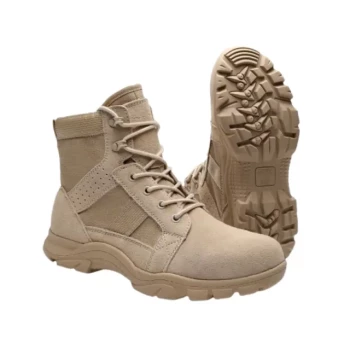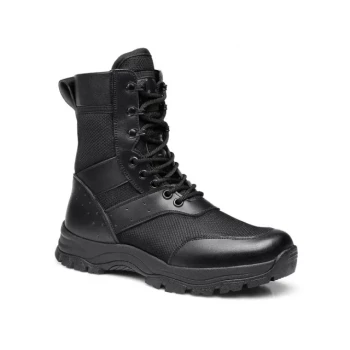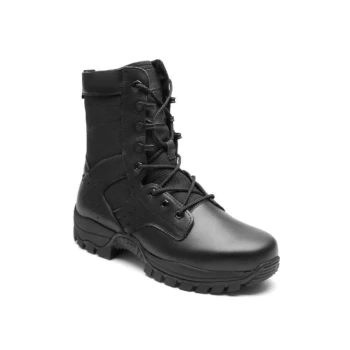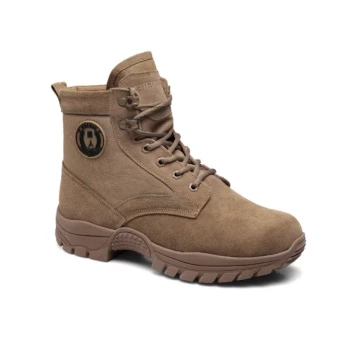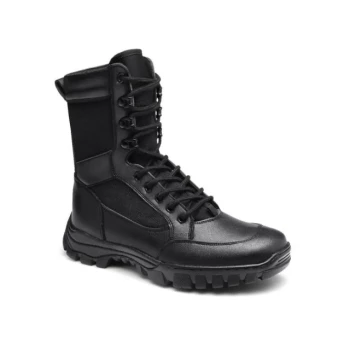The fundamental distinction lies in the intended application: Wellington boots are waterproof barriers designed primarily to keep feet dry in deep mud and static wet conditions, while walking boots are engineered supports designed to protect the foot and ankle during movement over rough terrain.
Wellington boots, typically made of rubber or PVC, prioritize complete waterproofing and high-leg coverage. In contrast, walking boots utilize leather or nylon to balance protection with the breathability and structural support required for long-distance hiking and mountaineering.
Core Takeaway While wellington boots offer superior impermeability for standing water and deep mud, they lack the biomechanical support necessary for serious walking. For any activity involving distance or uneven ground, walking boots are the safer choice as they are specifically designed to prevent injury and reduce fatigue.
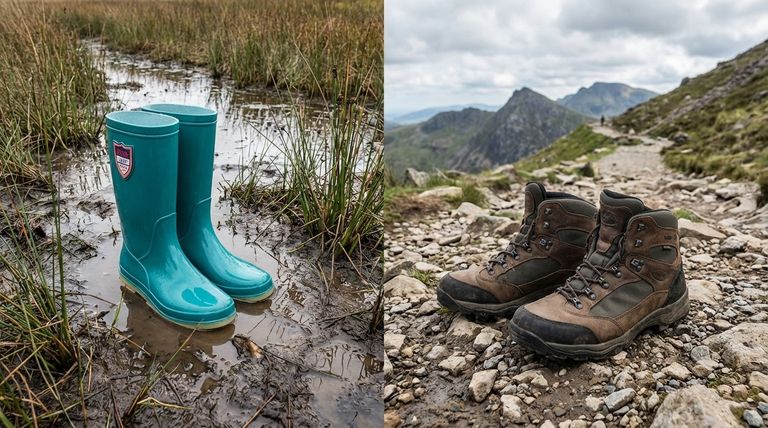
Structural Design and Materials
The Waterproofing Approach
Wellington boots are molded from impermeable materials like rubber or PVC. This seamless construction ensures that water cannot penetrate the boot, making them ideal for wading through puddles or marshes.
Walking boots, constructed from leather or nylon, are water-resistant but generally rely on a balance of durability and ventilation. They are designed to repel rain and snow but are not intended for prolonged submersion in deep water.
Shaft Height and Coverage
A defining feature of the wellington boot is the high shaft, which usually reaches just below the knee. This provides extensive protection for the lower leg against splashes, mud, and brush.
Walking boots typically feature a lower profile, focusing on covering the foot and securing the ankle. This lower height reduces weight and increases mobility, which is essential for climbing or hiking.
Performance and Biomechanics
Impact on Injury Prevention
The most critical technical difference is safety. Walking boots are explicitly designed to prevent injury. They feature lacing systems that lock the foot in place, providing necessary stability for the ankle on uneven ground.
Standard wellington boots do not offer this support. The fit is generally looser to allow for easy removal, which leaves the ankle vulnerable to twisting on rocky or unstable terrain.
Long-Distance Comfort
Walking boots are engineered for endurance. They utilize specialized insoles and midsoles to absorb shock and cushion the foot over miles of travel.
Wellington boots generally lack this level of internal engineering. While suitable for short periods, they can cause foot fatigue and discomfort if worn for long-distance trekking.
Understanding the Trade-offs
The "Welly" Compromise
The primary trade-off with wellington boots is breathability versus waterproofing. Because they are completely sealed rubber shells, they trap moisture from perspiration inside the boot.
If used for rigorous hiking, this trapped moisture can soften the skin, leading to severe blistering. Furthermore, the lack of a secure lacing system means the foot often slides inside the boot, reducing traction and control on slopes.
The Walking Boot Limitation
The trade-off for walking boots is coverage depth. Because they sit lower on the leg, they cannot protect you in deep water or boggy conditions where the mud level exceeds the ankle.
Additionally, walking boots require more maintenance. While a rubber wellington can simply be rinsed off, leather and nylon walking boots often require cleaning and reproofing to maintain their water resistance and material integrity.
Making the Right Choice for Your Goal
Selecting the correct footwear depends entirely on the environment and the duration of your activity.
- If your primary focus is deep mud or standing water: Choose wellington boots for their high shaft and absolute impermeability, provided you are not walking long distances.
- If your primary focus is hiking, climbing, or distance: Choose walking boots for their ankle support, breathability, and injury-prevention features.
- If your primary focus is industrial work: Consider safety wellingtons, which add reinforced toecaps and slip-resistant soles to the standard waterproof design.
Ultimately, prioritize the biomechanical needs of your activity: protect against wetness with wellingtons, but protect your joints with walking boots.
Summary Table:
| Feature | Wellington Boots | Walking Boots |
|---|---|---|
| Primary Use | Deep mud, standing water | Hiking, walking on rough terrain |
| Key Benefit | Superior waterproofing | Ankle support & injury prevention |
| Ideal For | Short-term use in wet conditions | Long-distance comfort & stability |
| Material | Rubber, PVC | Leather, Nylon |
| Breathability | Low | High |
Need the Perfect Boot for Your Business?
As a large-scale manufacturer, 3515 produces a comprehensive range of footwear for distributors, brand owners, and bulk clients. Our production capabilities encompass all types of shoes and boots, including specialized wellingtons and walking boots tailored to your market's needs.
Partner with us to access:
- High-quality, durable footwear built for specific activities.
- Reliable supply and competitive pricing for bulk orders.
- Customization options to match your brand and customer requirements.
Let's discuss your footwear needs. Contact our team today to get a quote and learn how we can support your business!
Visual Guide
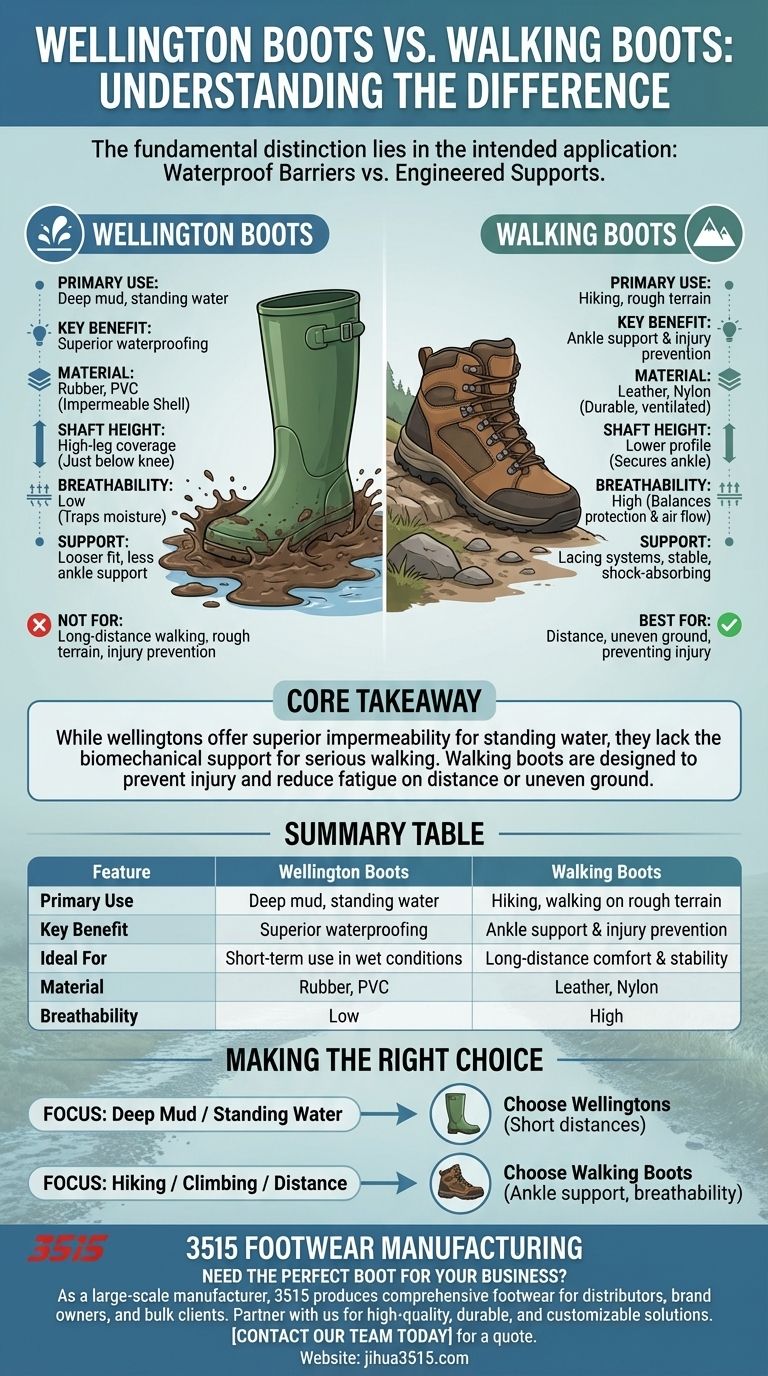
Related Products
- Factory Direct Wholesale Rain Boots Durable Waterproof & Fully Customizable
- Wholesale Safety Footwear Manufacturer for Bulk & Custom OEM Orders
- Factory-Direct Wholesale Canvas Boots with High-Traction Rubber Soles
- High Performance Fire-Retardant Waterproof Safety Boots
- Wholesale Waterproof Tactical Boots Custom Suede & High-Traction Soles
People Also Ask
- What are the benefits of short riding boots? Superior comfort, versatility & affordability
- How do comfort and style differ between winter boots and snow boots? Choose the Right Boot for Your Winter
- How can pillows help when sleeping with a walking boot? Elevate, Stabilize, and Cushion for Better Sleep
- What safety standards apply to motorcycle boots? EN 13634: The Essential Guide to Rider Protection
- What factors should be considered when choosing snow boots? Match Boot Features to Your Winter Needs
- What are the main categories of shoes suitable for walking? Find Your Perfect Fit for Any Terrain
- Why is the lining of cowboy boots important? The Secret to All-Day Comfort & Durability
- What are the pros and cons of softer cushioning in walking shoes? Balance Comfort & Stability













